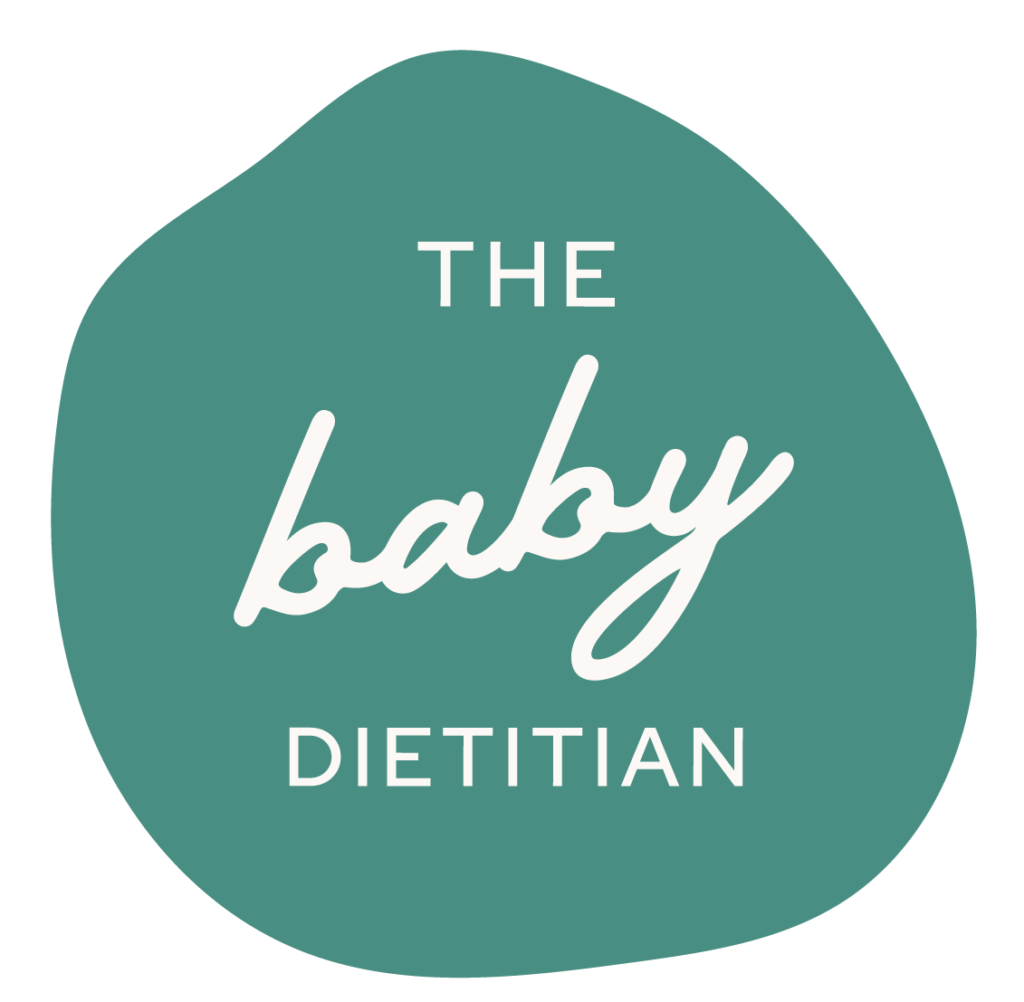Water Requirements 0-12 Months
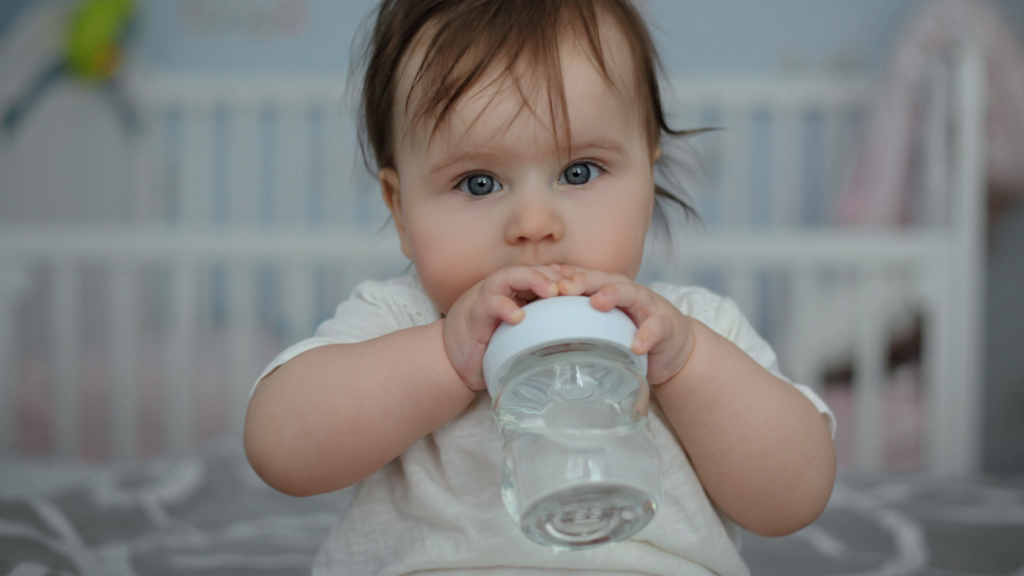
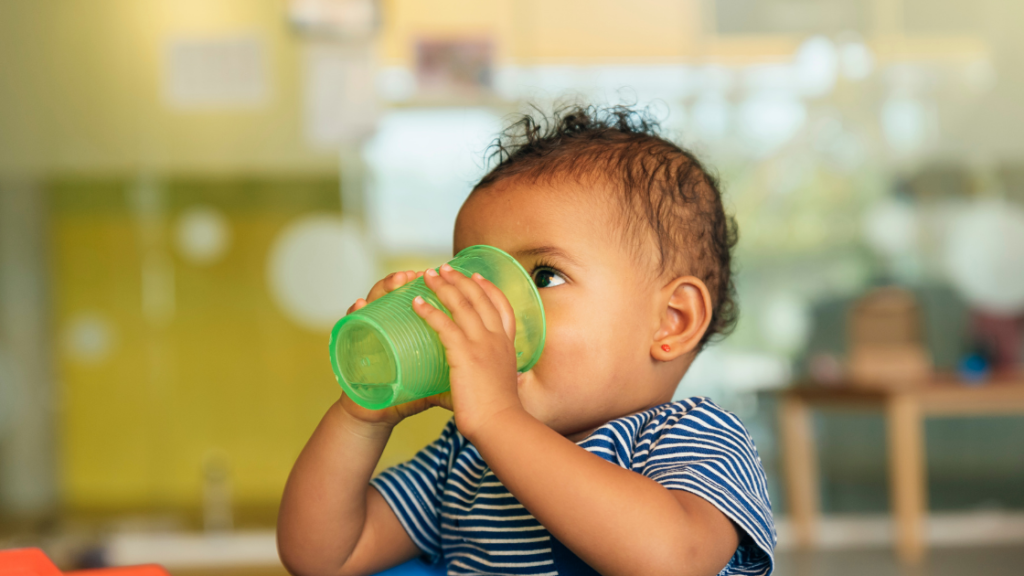
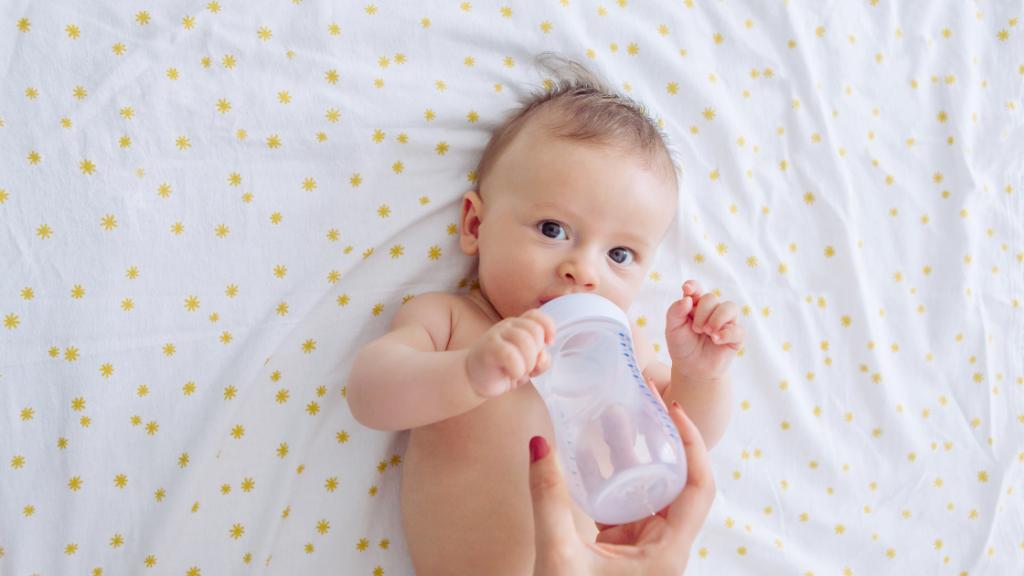
Some of the links below are affiliate links. At no additional cost to you, I will earn a commission if you click through and make a purchase.
Water For Babies
We’ve heard that “The AAP recommends breastfeeding as the sole source of nutrition for your baby for about 6 months.”
But are you wondering, what about water?
UNICEF states: “From the first hour of life, through to 6 months old, your baby can receive all of the nutrition she needs to grow and develop from your milk. She doesn’t need anything else – no water, tea, juice, porridge or any other foods or fluids during this period.”
Yes – let me repeat, no water!
In fact, there are risks associated with giving water to your baby before 6 months and giving too much water than recommended.
This post will provide you with all the facts on how your baby can meet their hydration needs with no water, the risks associated with water, and the guidelines on water for babies.
Tips on Water for Babies <6 months:
Exclusively breastfed babies (0-6 months old) do not need additional water.
The World Health Organization (WHO) notes that babies that are breastfed don’t need additional water, as breast milk is over 80 percent water and provides the fluids your baby needs!
Even in the first few days after birth before mom’s milk has “come in”, colostrum is all that is needed to keep the baby well hydrated (assuming baby is nursing effectively).
Formula fed babies also do not routinely need extra water.
Some sources do suggest offering water to a formula-fed baby when it is very hot outside (though the baby may prefer to get extra water from more frequent feeding), or when the baby is sick with a fever.
However, most of the time, your baby is most likely getting all their hydration needs met through the water in the formula.
Consult your baby’s doctor for water guidelines that are appropriate for your child.
When it’s hot:
You may notice your infant requiring more nursing sessions if prolonged time is spent in the heat. I highly recommend offering more nursing sessions if you have any concerns with less than optimal fluid intake, or if you see decreased wet diaper output.
Again, if you have any concerns about your child being dehydrated, reach out to your pediatrician immediately.
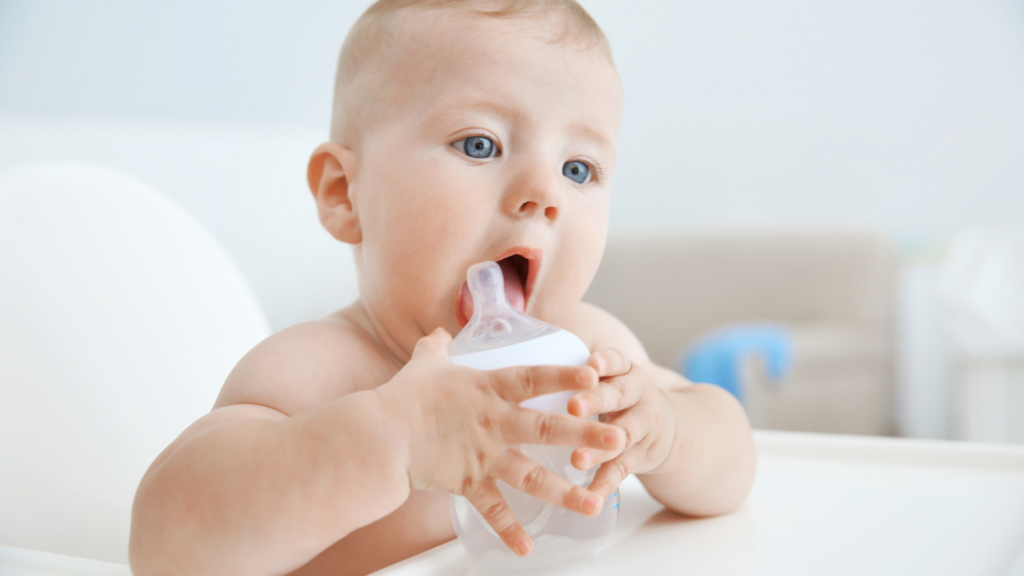
Water for Babies >6 Months:
Small amounts of water when starting solids at 6 months can be provided with meals. No more than 4-8 ounces of water should be provided a day from the age of 6-12 months.
Water can be provided in an open cup or straw cup at mealtimes which helps promote oral motor skills. Find some of my favorite starter cups here!
EZPZ sells the perfect open cup for little hands! Use code “THEBABYDIETITIAN” for 10% off.
| AGE | Water Recommendations |
|---|---|
| <6 months | None needed or recommended |
| 6-12 months | 4-8 ounces of water can be given per day but is not a necessity. Water shouldn’t be replacing the fluid your baby receives from breast milk or formula. |
What happens if your baby drinks too much water?
- The addition of extra water can fill an infant’s stomach up so that the infant is not taking as much breast milk or formula as nutritionally needed or required.
- Risk for hyponatremia (dilution of baby’s sodium levels), which can lead to seizures, coma, brain damage, and death
- Risk for water intoxication. Signs of water intoxication include:
- Confusion
- Drowsiness
- Muscle cramps and twitching
- Nausea and vomiting
- Difficulty breathing
- Weakness
Call your pediatrician and/or head to the hospital immediately if your baby shows any of these signs of water intoxication.
Water in Food
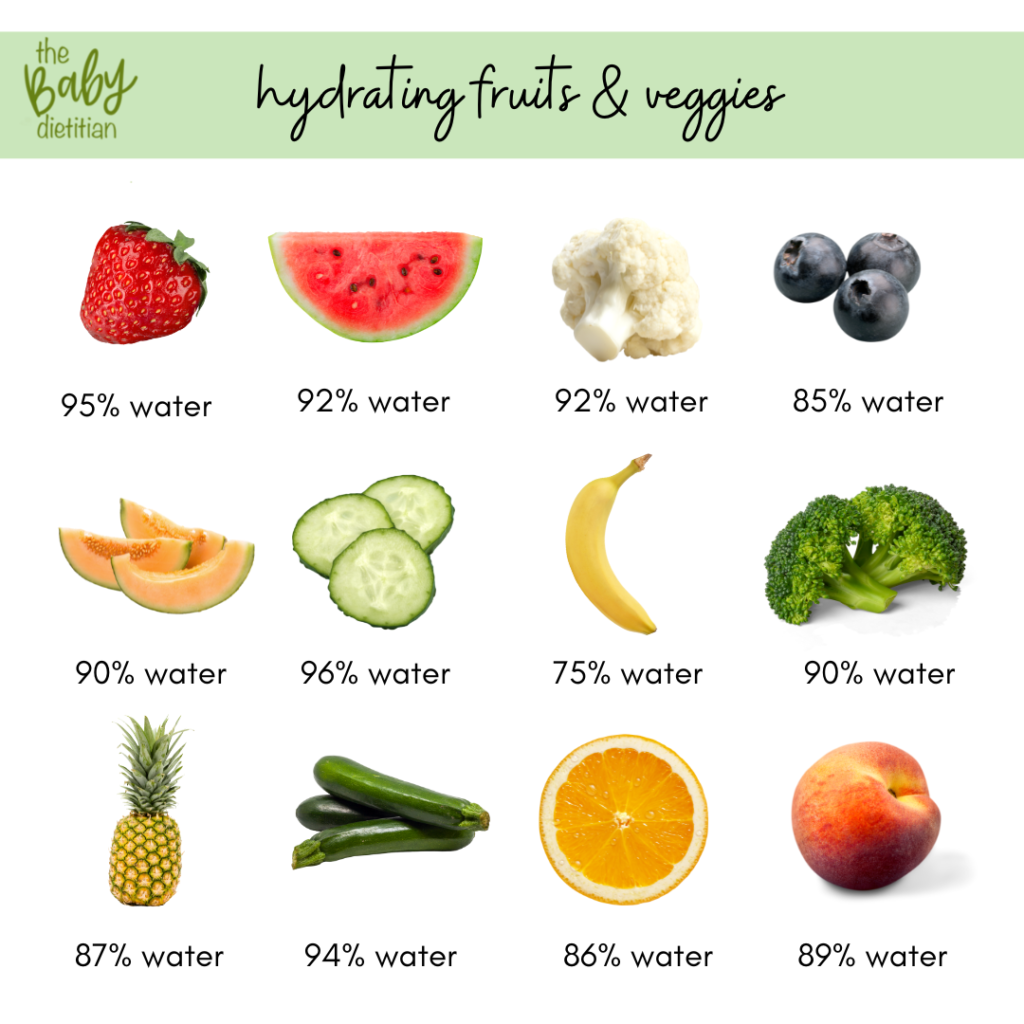
Did you know you can hydrate with what’s on your plate — not just what’s in your cup?
If your baby has already started on solids, offering hydrating fruits and vegetables during meal times can help your little one achieve adequate hydration alongside their breast milk, formula, or water intake.
Some examples include:
- Watermelon
- Cucumber
- Strawberries
- Pears
- Cantaloupe and honeydew
- Oranges
- Celery
- Tomatoes
Main Takeaways
Water should NOT be provided under the age of 6 months! That is because breast milk and formula are composed of over 80% water and are the only necessary fluid before 12 months of age.
For babies 6 months of age and older, they can have small amounts of water, about 4-8 ounces per day.
Too much water for babies can cause hyponatremia and water intoxication. Pay attention to any signs of water intoxication and call your pediatrician and/or go to the hospital if you notice any signs of concern.

Cinthia Scott is a Registered Dietitian (RD) and International Board Certified Lactation Consultant (IBCLC) , with over 7 years experience in the field of dietetics. Cinthia focuses on ensuring optimal nutrition in the first 1000 days of life to ensure optimal growth and development as well as set the stage for long-term health. Cindy is an author, starting solids expert, and advocate for caregivers receiving evidence based education and support surrounding breastfeeding and starting solids.
Cinthia is co-author of the 101beforeone Starting Solids Book, “101beforeone -baby-led feeding cookbook,” and is the founder and owner of The Baby Dietitian LLC which is her private practice built to provide virtual 1:1 services for caregivers surrounding infant nutrition, toddler nutrition, and breastfeeding support. Cinthia is also the creator of the Starting Solids 101 Program which provides caregivers 1:1 support from a Pediatric Dietitian on how to provide optimal nutrition from the start and create healthy eating habits that will last their whole lifetime. To work with Cinthia, you can access her services here.
Cinthia provides tons of free information for parents on her social media accounts as well.
- Instagram: @The.Baby.Dietitian
- Tiktok: @The.Baby.Dietitian

